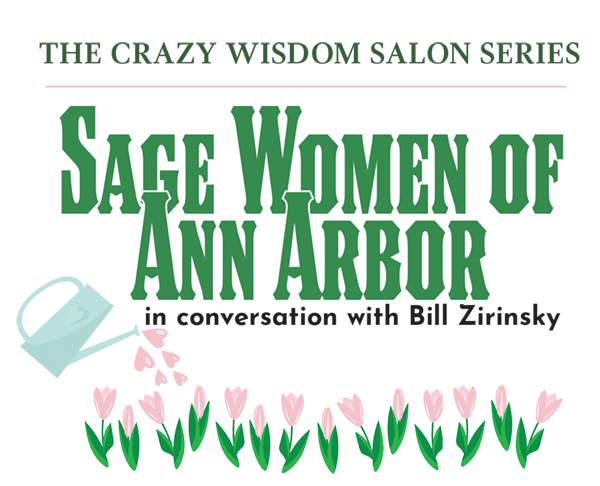By Sibel Ozer
Overall, I am a better therapist than I am a mother. My love for my children is unquestionably larger/deeper than my care for my clients, and yet when it comes to communicating it, I do a better job as a therapist.
Being a therapist is by far less messy than being a parent, and also quite a bit less vulnerable. My ego functions are often triggered as a parent, whereas I can easily keep them out of the picture in my role as counselor. I so cherish the concept of good enough parenting. That, I can do.
Being a mom is more complicated in that it is many jobs woven into one role and they don’t always align. Conflicting desires co-exist, warring to get their agenda through. The love is underneath it all, and yet there is the responsibility to model and mold a good work ethic, to form a sense of responsibility and accountability, to transfer morals and values, to create empathy alongside a solid sense of self-respect, to encourage their minds to remain open and curious, to tolerate their needing to experience their resilience, to teach kindness, and so much more. I have to reread the passage on children in Kahlil Gibran’s The Prophet, to remind myself of the fallacy of my own indoctrination on parenthood.
I am not expected to shape and influence my clients the way I try to shape my children. In fact we would consider that undesirable most of the time, something that gets in the way of our neutrality, and our clients’ rights to be seen, heard, and understood as they are. Most of the time it is easier to listen, in fact it is the bulk of the work, even when I don’t agree with what I am hearing. At times I find myself getting impatient though, no different than in my parental role, particularly when I see my clients being cruel to themselves, or allowing themselves to be mistreated.
I had a really lousy session the other day where my client told me she felt as if I didn’t want her to succeed, and that I didn’t trust her. At least there was safety enough for her to be honest about it! And thankfully, I’m humble enough to admit when I take a wrong route. There are always so many possible threads to follow in a therapy session. I was asking some hard questions with the choices my client made, and though they were relevant and important to consider, I missed what she most needed in that moment, which was moral support. It was not ideal, but it happens.
The times I am a lousy parent, similarly choosing to follow the wrong thread in a given interaction, are too numerous to know. The older our children become the more of a challenge this becomes, as we have to relinquish the things we so desperately want to pass on to them as we run out of time. The role of teacher, explainer, and guide between right and wrong, becomes mostly obsolete, even as the habit remains. It may never become obsolete on our end, but they are simply no longer interested.
And, of course, there are the other roles I haven’t touched on, of being a partner or spouse, a colleague or friend, a mentor or actual teacher to someone. In these roles, too, there are choices around what one will focus on, where one will take the conversation. We can be more logical, emotional, pragmatic, encouraging of freedom and folly, serious, humorous; the possibilities are really endless.
I find the better threads to follow are there if we are intent on finding them. This is easier to do when we are balanced and resourced, which one rarely is with young or multiple children, or if one is overwhelmed, burdened, grieving, or lacking in health. When I am centered within myself, connected to my core Self, and attuned to seeking what might be most helpful, it’ll often come to me. I think of this practice as connecting to the current or wavelength of higher wisdom. Seek and you shall indeed find it.
Since what comes from this source is ever changing and dependent on the person, moment, and what is needed, there are no single or simple answers that can be reapplied. It is not a path for those uncomfortable with the unknown, or lacking in humility, to accept they cannot be all knowing.
One thing I do know that never fails both as a parent and therapist is to say something nice when I encounter a positive. Has my son emptied the dishwasher without my asking, or brought in the heavy water bottle? I try not to miss thanking him for it. Just to make sure you don’t get the wrong idea I don’t miss the opportunity to comment on behaviors I believe need correcting either: poor eating habits, poor posture, poor hygiene. So more often then I would like, I end up cancelling the effect of the positive feedback by the well-intended criticism with my kiddos. Hence, why I am a better therapist. With others, I frequently comment on clothes when I like them, or people’s hair, or something that stands out like smiling eyes. I won’t do it if I’m not genuinely feeling it though, it is important for compliments to come from the heart. I often say that we should not miss an opportunity to communicate something good about another person.
One of our basic needs as humans, alongside security and eating, is receiving recognition/validation. Just because we don’t jump up and down like a kid would on the playground seeking their mom’s praise on their latest achievement, doesn’t mean our need for recognition goes away as adults. We will need positive feedback and recognition until the day we die, and there is nothing wrong or vain about it; it is a simple part of our humanity. We are so good as a species to point out what is lacking, wrong, or out of balance, but rarely as generous with things that are in order. This is referred to as a negativity bias and has an evolutionary purpose. It is unfortunately not as helpful for our psychological welfare though. I believe we all need quite a bit more positive feedback about all parts of our existence. The way we dress, smile, move, articulate, think, produce, or savor about our being as well as our doing.
This, I think, is an easy gift we can all offer one another. Not the exaggeration of it in an artificial way—I am not approving of the trend to give a trophy for mere participation. I believe in knowing defeat and failure, in the concept of hard work toward achievement. I am not talking about the social media likes and loves that we are trying to generate through the capturing of idealized moments of our lives, either. I am referring to not holding back when we notice something positive in each other, ideally when we aren’t trying or performing.
The more factual, in passing and matter-of-fact compliments are, the better. Maybe you can start with noticing when someone does this for you, or be on the lookout for an opportunity to offer it to someone you don’t know. Enjoy the increase of smiles in your day, both others’ and your own. Even better, include in your internal self-dialogue, something nice to yourself. A client of mine spent an entire session not only talking about the parts of her that she liked and loved, but connecting to her body as she was doing so. She had come feeling under-supported, and left feeling grounded and empowered. I highly recommend a daily practice of saying something nice to self and others.
Sibel Ozer is a licensed professional counselor and board-certified art therapist currently doing private practice in downtown Ann Arbor. She started her career as a clinical psychologist working with earthquake survivors in Turkey. She continued her work in the United States in hospice, hospital, and private practice settings further specializing in grief, loss, and trauma. She is a certified EMDR practitioner and a graduate of the Gestalt Institute of Cleveland. She gives experiential workshops nationally and in her country of origin (Turkey) on different art therapy topics. Visit www.sibelozer.com, call (303) 905-1109, or email fireflyarttherapy@gmail.com.






































































































































































































I was hesitant to share my latest painting as my ingrained skepticism rears its head whenever angels appear, making me feel childish that I paint them. I grew up in a household where rationality ruled; the fantastical was accepted as part of the arts, but not necessarily respected. The intelligence of people of faith was questioned in principle, and my innocent curiosity was frequently ridiculed. I think it is rather miraculous that my spiritual interests and seeker tendencies weren’t wiped out altogether. In some of us, the yearning for a relationship with the Divine is strong—no different than a love of the arts or a passion for music is in others—and therefore hard to extinguish.